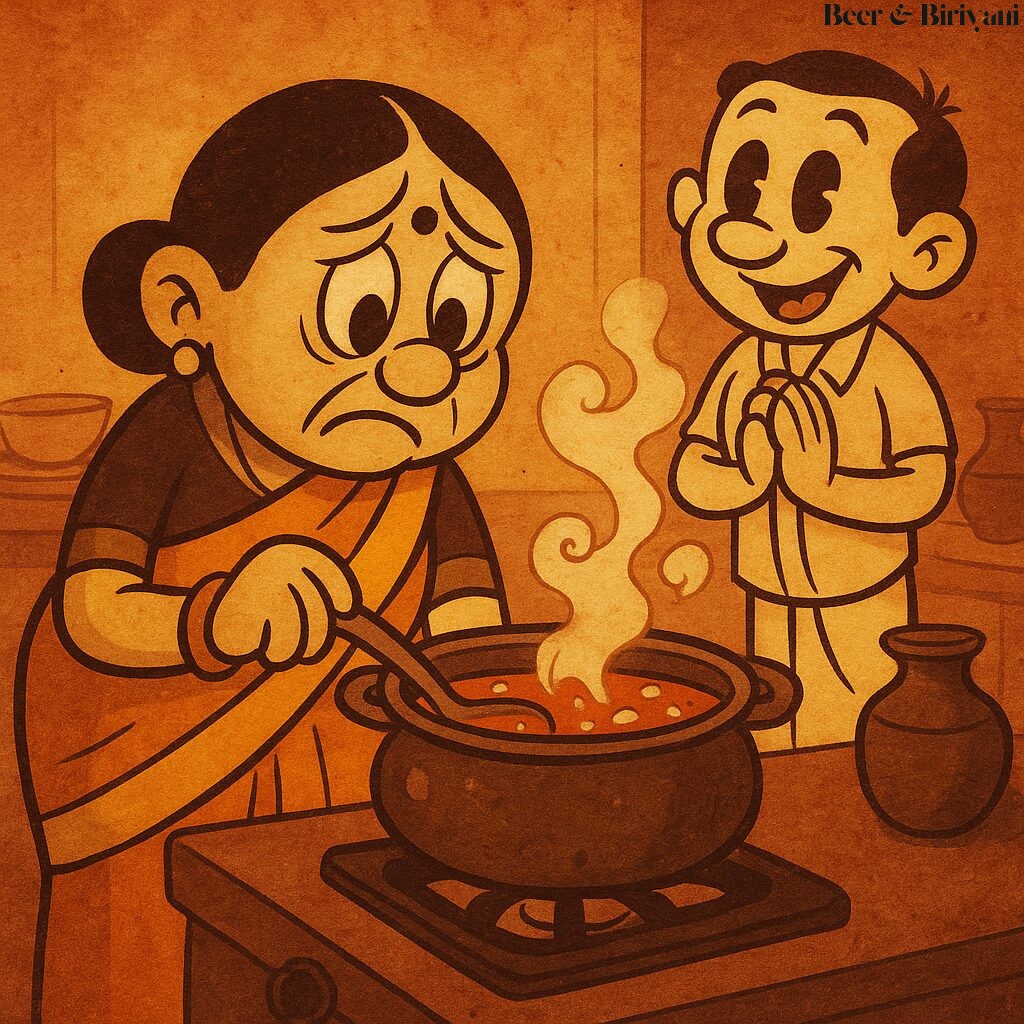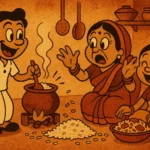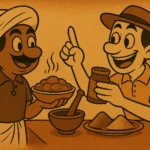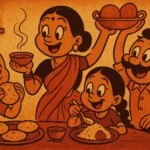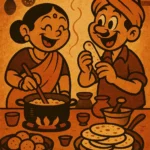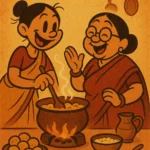Grief Tastes Like Rasam
It hit me on a Wednesday evening. Not a date of significance, not even the anniversary of anything. Just an ordinary Austin day with bad traffic and worse emails, and the kind of low-key homesickness that’s usually solved with a walk or a whisky. But that night, I walked into the kitchen, opened the spice cabinet, and pulled out the rasam powder.
I don’t know what I expected. Maybe a portal. Maybe my mother’s voice echoing instructions from her Mumbai kitchen. Maybe some culinary muscle memory kicking in and doing the thing she used to do without measuring spoons, without fuss, and always with results that bordered on magic.
Instead, I got steam in my glasses, cumin in my nose, and a rasam that was… close. Too close. Like an almost-hug. Like hearing a song you half-remember but can’t quite finish the chorus of. The tamarind was there. The peppery warmth was there. But something about the way it landed on the tongue felt like a detail forgotten. A note missed.
Cooking to Remember
After she passed, I couldn’t cook anything for a while. Not because I didn’t know how, but because food was the main way she loved people, and I wasn’t ready to feel that kind of love in my kitchen, reheated. I would stand in front of the pantry and feel like an imposter. The rasam powder she’d mailed from Mumbai a year ago still sat unopened, her handwriting on the label slowly fading. “Use sparingly. Very spicy.” Underlined twice. I didn’t touch it for months.
When I finally did, it was less of a tribute and more of a surrender. I needed to taste something that belonged to her. I wanted to borrow her hands, even if they were mine now. So I boiled the toor dal. I soaked the tamarind. I crushed garlic just the way she did—on the edge of the cutting board with the flat of a knife. I even remembered the weird, exact moment she’d add the hing: not too early, not too late. Just before the tomatoes hit the pan.
What Even Is Rasam?
If you’re unfamiliar with rasam, it’s a southern Indian soup of sorts, made with tamarind, tomatoes, black pepper, and lentils. Think spicy, tangy, warming—what chicken soup thinks it is when it’s being dramatic. Rasam is a comfort dish, yes, but also a medicinal one. It clears sinuses. Settles stomachs. Fills silences. There are as many kinds of rasam as there are opinions in an Indian family: pepper rasam, garlic rasam, lemon rasam, even pineapple rasam if you’re feeling bold or are from Karnataka.
In our house, rasam was weekday food. Background food. The thing quietly poured over rice when no one wanted to talk, or when someone had a cold, or when dinner just needed to be fast. But when she made it—always quickly, never distractedly—it was more than soup. It was rhythm. A process performed so fluidly that I never thought to learn it properly until it was too late.
Almost, But Not Quite
The thing no one tells you about grief is how it messes with taste. Your tongue remembers, but your heart edits. My rasam that night was technically correct. Balanced. Seasoned. Even the tadka—mustard seeds, curry leaves, and dry red chili sizzling in ghee—crackled like applause. But I took the first spoonful and something inside me slumped. Not because it was bad, but because it wasn’t hers.
I called my sister to complain. She laughed and said hers never tastes right either. “It’s missing her impatience,” she said. “And the fact that she’d yell at us for standing too close to the stove.” We laughed. Then we cried. Not in a movie way. More in the muted, phone-on-countertop, wiping-eyes-with-sleeves kind of way.
Love Without Measurement
We often think of recipes as legacy. The truth is, recipes are just scaffolding. They’re bones. The real flavor lives in gesture. In instinct. In all the unsaid things a person adds without realizing—how long they stare at the boiling pot before lowering the heat, how they use the back of a spoon to crush the tomato against the steel of the kadai, how they taste it right before serving and decide to do nothing because it’s already enough.
None of that is written down. And when they’re gone, what you’re left with is a dish that tastes like an echo. A dish that reminds you how much of cooking is them, and how much of what we’re really trying to recreate isn’t food—it’s presence.
Finding Her in the Steam
I still make rasam now. Not often. Only on days when the ache and the hunger overlap. I’ve stopped trying to make it perfect. That ship has sailed, and honestly, I don’t think I’d want it to dock even if it could. Because the point isn’t to replicate. It’s to remember. The sting of pepper in the throat, the heat rising to the nose, the way the kitchen smells right after the mustard seeds pop—it’s the closest I can get to her some days.
And in that closeness, something softens. Something heals. Even if the rasam isn’t quite right. Maybe especially because it isn’t quite right.
Born in Mumbai, now stir-frying feelings in Texas. Writes about food, memory, and the messy magic in between — mostly to stay hungry, sometimes just to stay sane.

